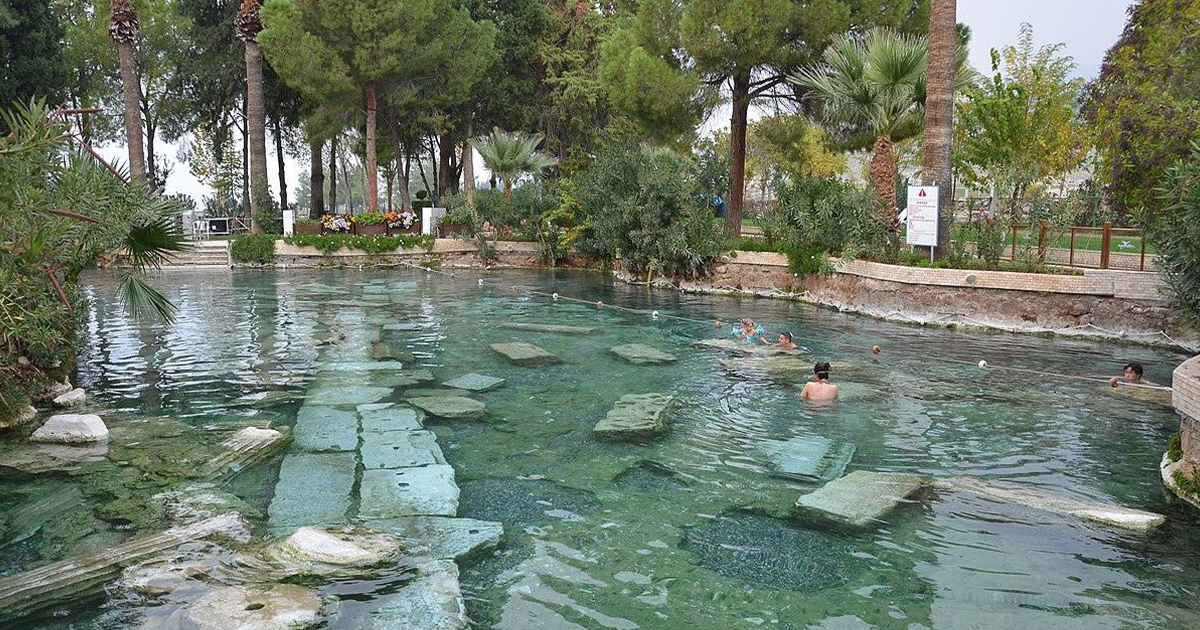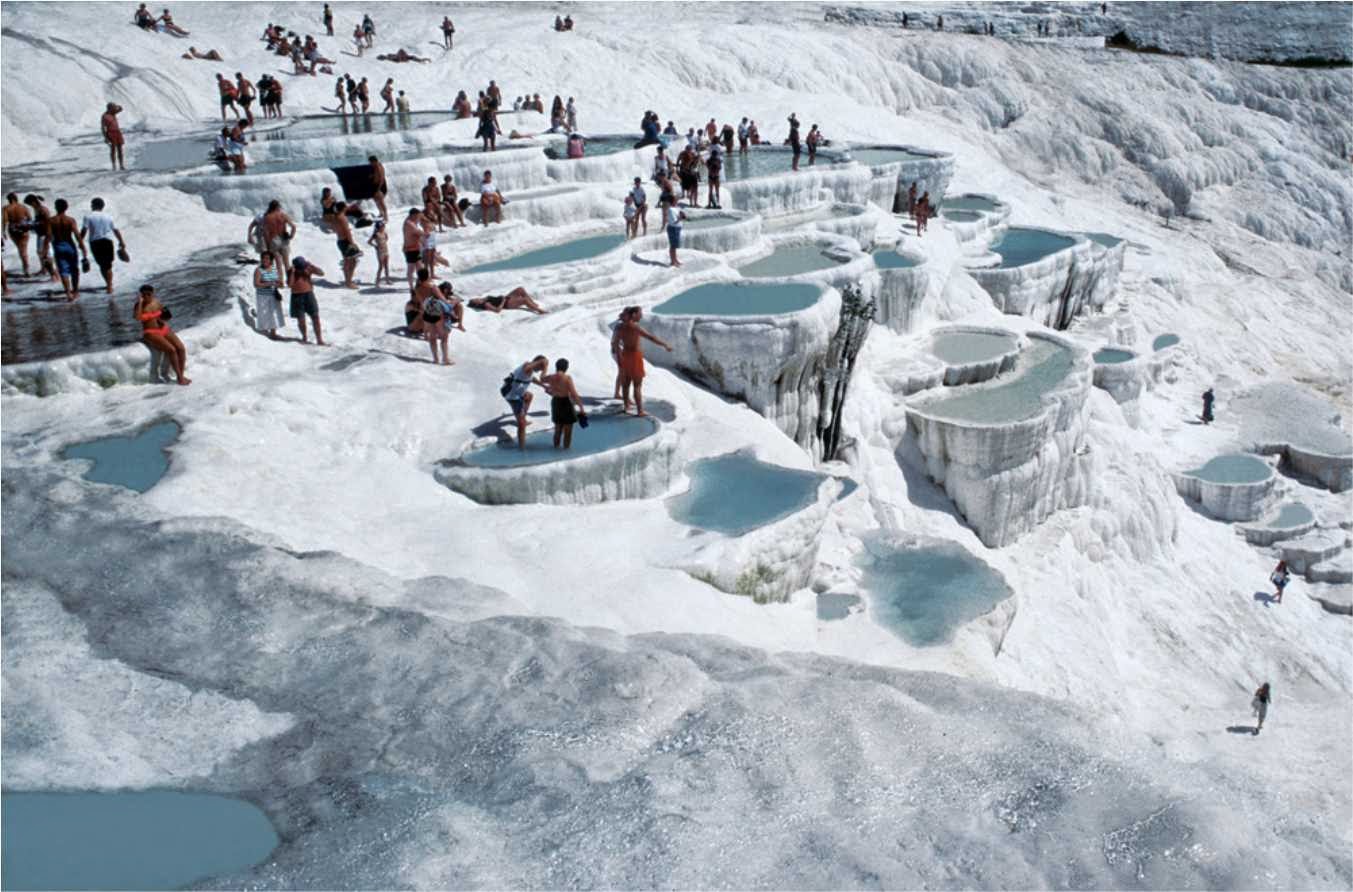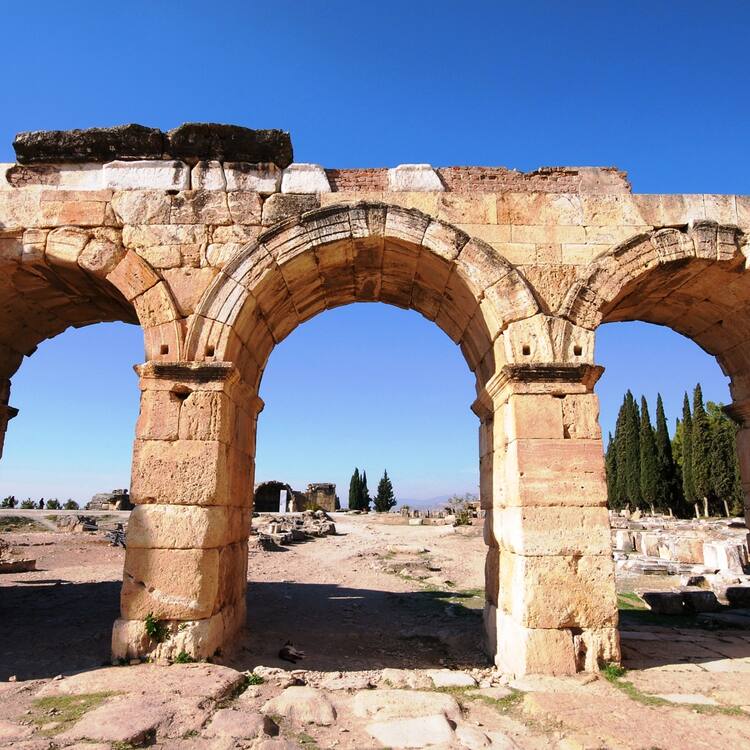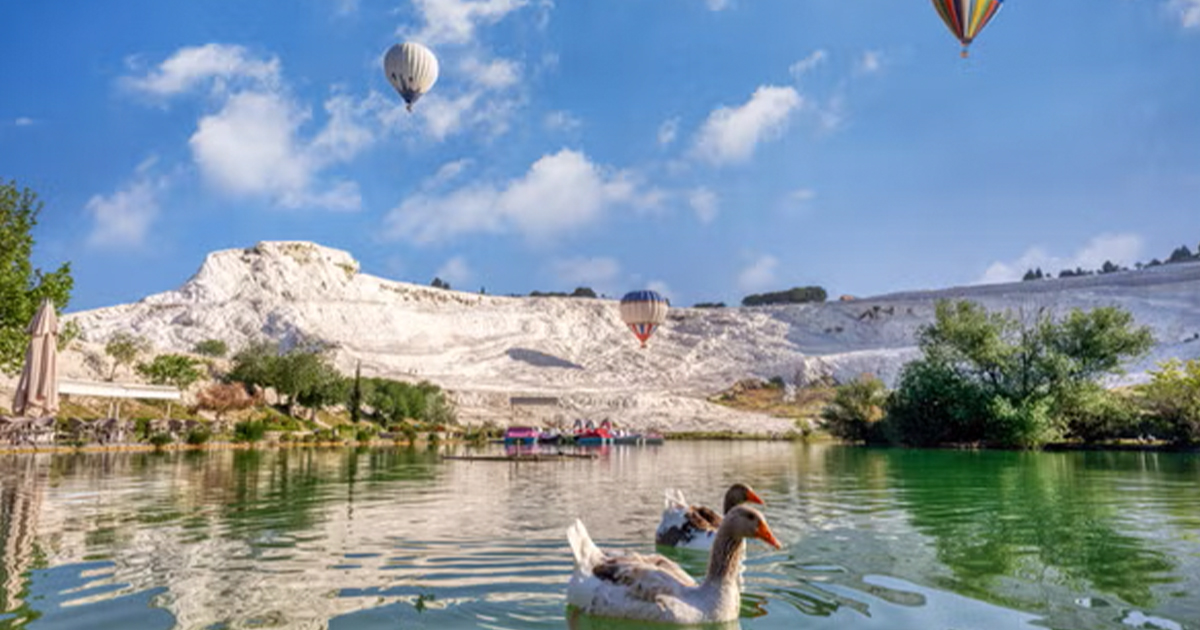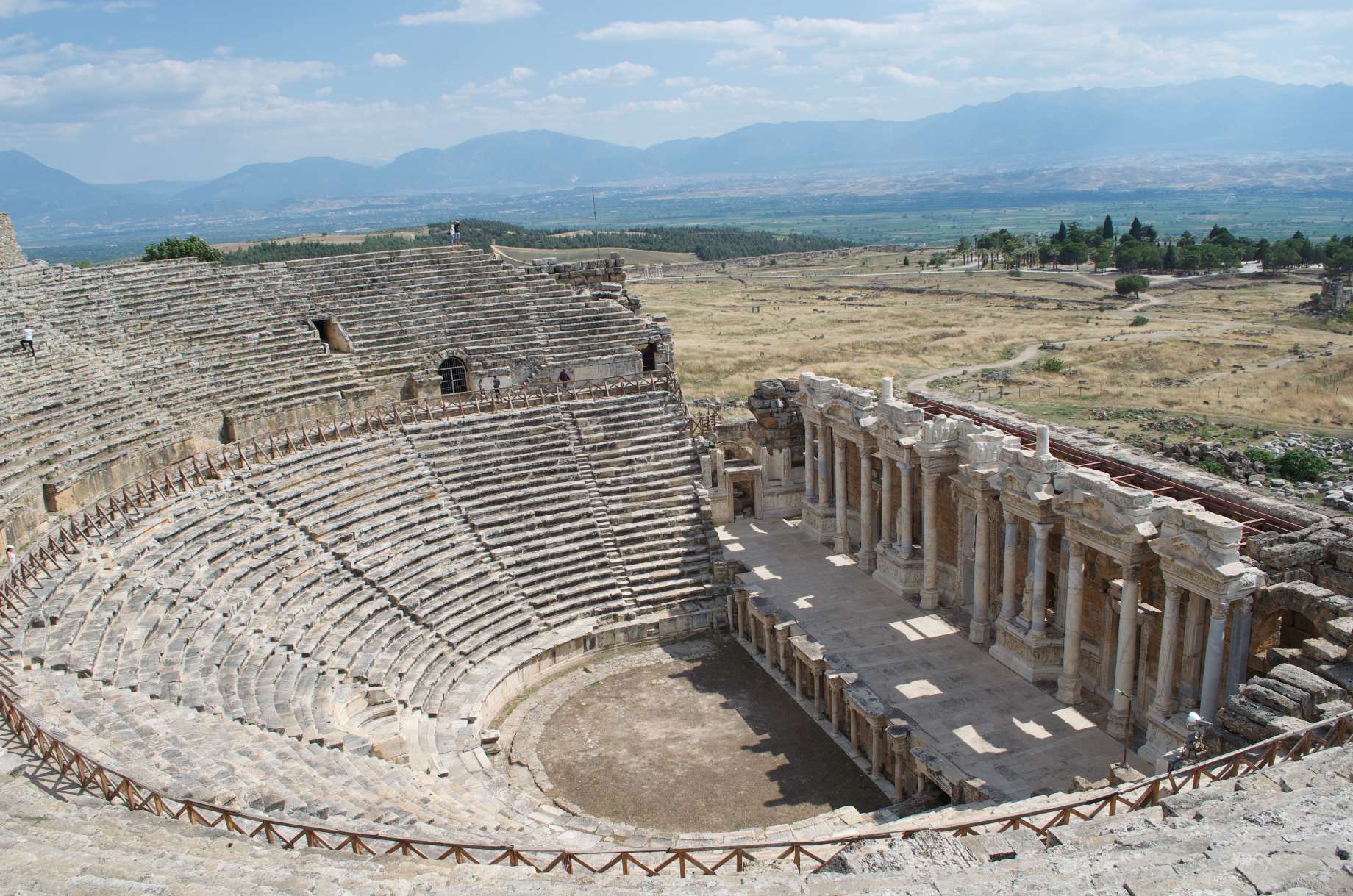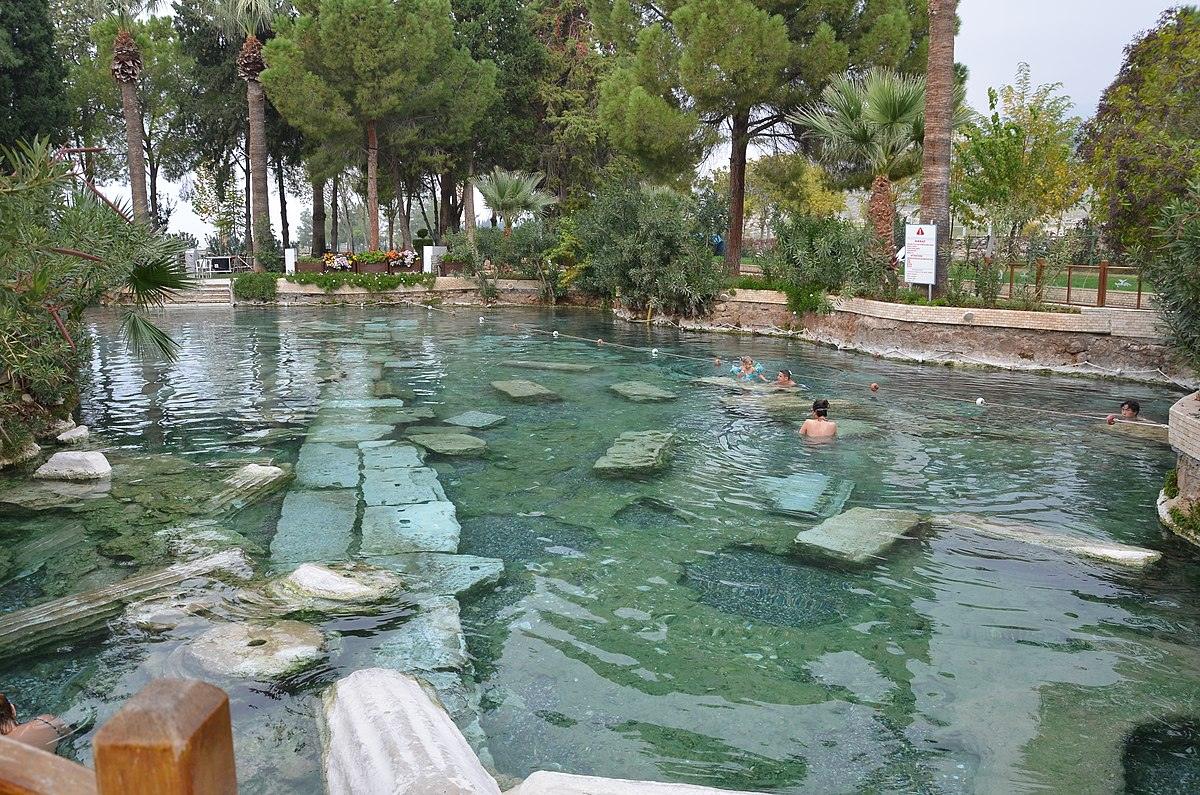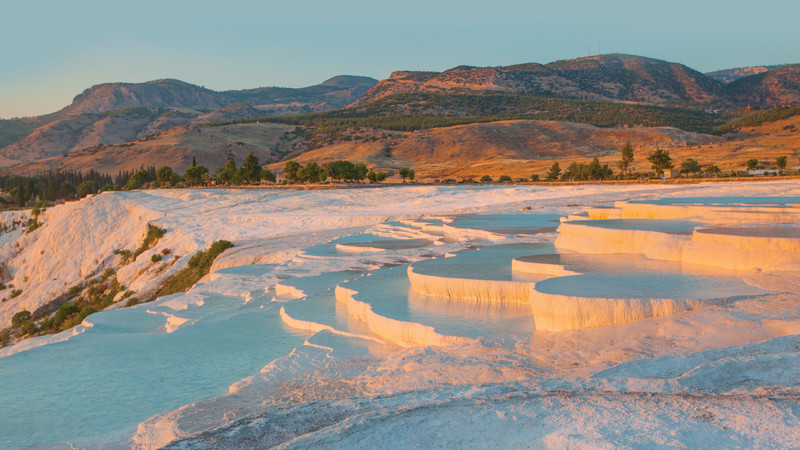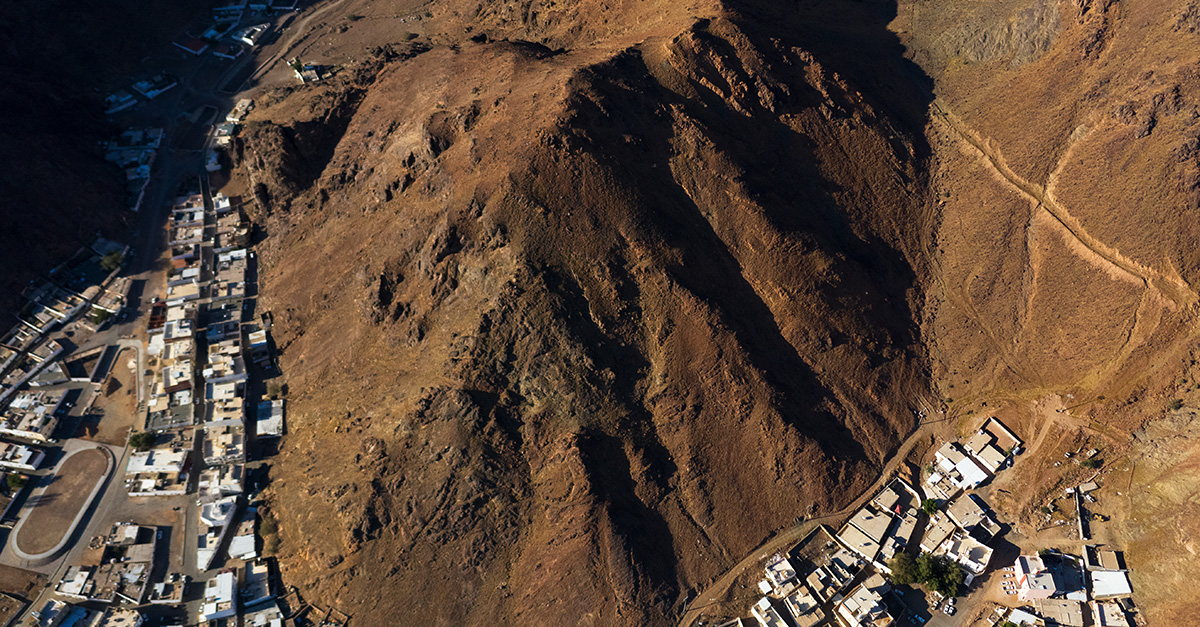Pamukkale: The “Cotton Castle”
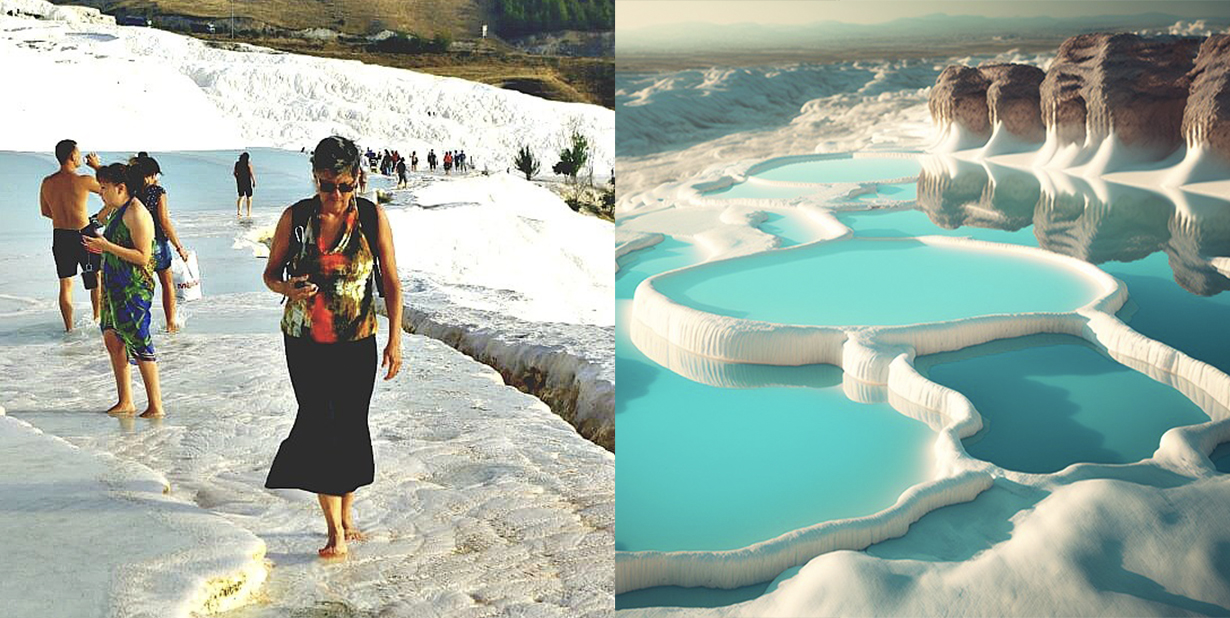
Tucked away in the southwestern hills of Turkey lies the enchanting landscape of Pamukkale. Renowned for its beautiful travertine terraces, hot springs, and ancient ruins, the natural wonders and rich history of Pamukkale have made it one of the world’s most amazing destinations.
Let’s take a deeper look at Pamukkale’s incredible history and best attractions.
Natural Wonders
In Turkish, Pamukkale means “cotton castle”, and this is a perfect description for the travertine terraces that have formed in the area. Travertine is a form of sedimentary rock that is created by the region’s natural hot springs.
Pamukkale is home to 17 hot springs, with temperatures ranging anywhere from 35 °C to 100 °C (95 °F to 212 °F). The water in the hot springs contains a lot of minerals, so as it flows down the hillside, it solidifies into the stunning white terraces that gave the area its name.
History Of Pamukkale
Pamukkale’s hot springs have captivated people for hundreds of years. Before the area was colonized by the ancient Greeks, the Phrygians dedicated the site to the mother goddess Cybele and believed that the springs were a gateway to the underworld.
After assimilation with the Greeks in the 2nd century BC, people came to believe that the mineral-rich waters of the springs had healing properties. They built the city of Hierapolis over the terraces, completing the area’s transformation into a renowned center for healing.
Architectural Marvels
Though it was built by the Greeks, Hierapolis would also thrive under the Roman and Byzantine empires. The most well-preserved ruins were built during the Roman era, but all of the structures in Hierapolis display a unique blend of Hellenistic, Roman, and Byzantine architecture.
Because of the incredible natural wonders and architectural history, Pamukkale was recognized as a UNESCO World Heritage Site in 1988.
Culture And Cuisine
The culture of Pamukkale is a vibrant blend of ancient traditions and modern delights. Locals in Pamukkale are known for their friendliness and the markets offer a chance to watch artisans create traditional Turkish goods, like handmade carpets and ceramics.
You can also sample authentic local cuisine, like Denizli kebabs, shepherd’s salad, and Turkish delight. Several festivals take place throughout the year, and they all offer another great opportunity to take in the local art and music.
Exploring The Terraces Of Pamukkale
Throughout its history, the main attraction at Pamukkale has been its mineral-rich hot springs and beautiful travertine terraces, and these natural wonders still draw in scores of tourists today. While the landscape looks chilly, the springs keep it warm enough that you can walk barefoot on the terraces.
You can also test out the healing properties of the springs since some of the pools are open to the public.
The Ruins Of Hierapolis
Next to the Pamukkale’s terraces is where you’ll find the ancient ruins of Hierapolis. The best structures are left from the Roman Empire and include the Temple of Apollo, the Necropolis, and the grand theater. You can also visit the Martyrium of St. Philip, which is believed to be the tomb of the martyred saint.
Exploring the ruins of Hierapolis is an incredible journey through time and visiting the nearby Pamukkale Hierapolis Archaeological Museum offers a chance to really connect with the history of this amazing area.
Cleopatra's Pool
The ruins aren’t the only cool thing you’ll find at Hierapolis. Cleopatra’s Pool is one of the most popular hot springs, and got its name after Cleopatra took a dip in these healing waters. The spring also has Roman columns under the water and the pool is open to the public, making for a truly special experience as you swim in these ancient waters.
Pamukkale Natural Park
The hot springs and travertine terraces aren’t the only natural wonders at Pamukkale. Away from the main tourist area is the Pamukkale Natural Park. This beautiful park is a great place for a peaceful walk or picnic.
There’s also a smaller set of travertine terraces at the park, so it’s the perfect spot for visitors who want a bit more privacy as they take in the incredible sights at Pamukkale.
Final Thoughts
Pamukkale is home to some of the coolest natural wonders and historical treasures. Whether you’re taking in the beauty of the travertine terraces, exploring the ruins of Hierapolis, or experiencing the local culture, you’re sure to be enchanted by this magical destination.

